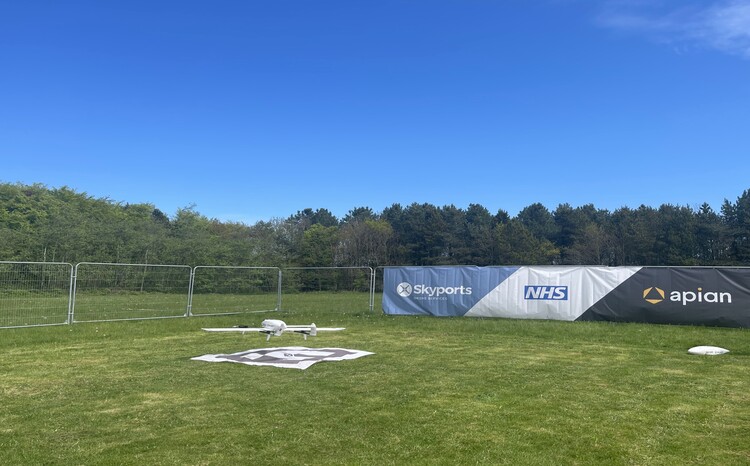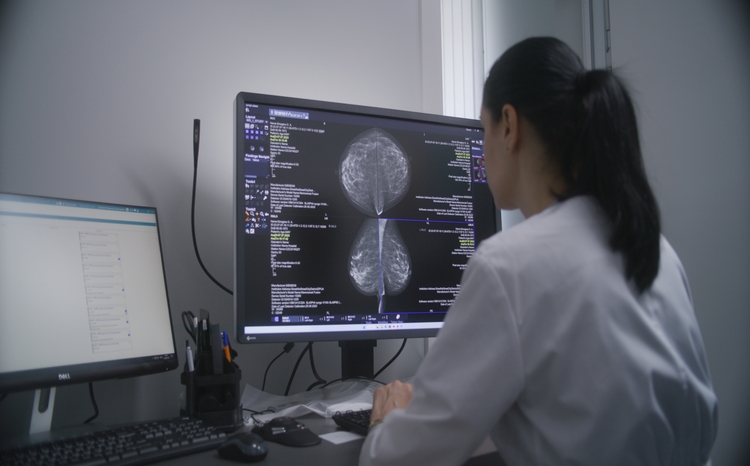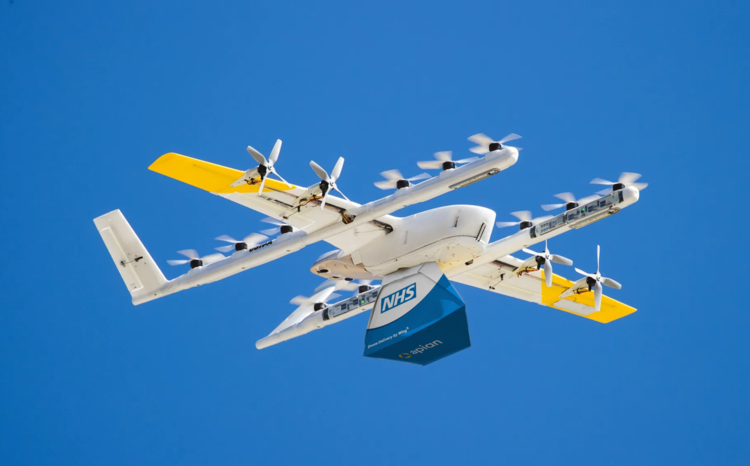Drones can successfully fly blood packs, study finds
- 23 August 2024

- Study showed no compromise to safety or quality of blood packs transported by drones
- Drones travelled distance of 68 km over the Northumbrian coastline
- The joint study by NHS Blood and Transplant and Apian is a step towards the case for NHS drone use
Drones can be used as a safe mode of transport for delivering blood packs, according to a study run by NHS Blood and Transplant (NHSBT).
Under the study, 10 units of packed blood cells were transported on a 68km journey across Northumbria, while an identical 10 packs were transported via road, with the aim of assessing how temperatures and vibrations during a flight might alter the quality of blood components.
There were 10 journeys undertaken between Northumbria Healthcare NHS Foundation Trust’s Wansbeck Hospital and Alnwick Infirmary and back again.
Each pack was then analysed to assess factors including concentration of potassium and the percentage of haemolysis (destruction of the blood cells).
Assessment results showed that both sets of blood packs maintained quality and could be used for clinical purposes, meaning that drone delivery could be used as a safe mode of transport.
Gail Miflin, chief medical officer at NHSBT, said that the results of the first trial were “very promising, showing no compromise to the safety of the blood”.
“Technology is advancing rapidly and we are keen to examine how innovative technology, such as that Apian offers, may be able to support and further decarbonise our extensive logistics operations in the future,” Miflin added.
This was the first time in the UK that blood packs have been delivered by drones flying beyond the visual line of sight, meaning the pilot cannot see the physical drone as it travels, instead monitoring it remotely.
Results of the research, which was run in partnership with medical logistics company Apian, were published in the British Journal of Haematology in April 2024.
Hammad Jeilani, medical director and cofounder at Apian, said that the trial demonstrated that drone delivery of blood packs is “feasible and safe, supporting the potential for drones to transport critical healthcare supplies to patients, at the right time and with fewer emissions”.
The study, in April 2023, was the first in a series of NHS trials to ascertain the feasibility and safety of delivering medical supplies via drone, which can be faster and more environmentally friendly than road travel.
Meanwhile, aerospace innovators SLiNK-TECH and Aerovolt have announced a partnership to design and build a drone delivery system that could benefit NHS Wales and other healthcare providers.
Under a Memorandum of Understanding signed on 15 August 2024, the firms have agreed to integrate the automated vertiport system designed by SLiNK-TECH with Aerovolt’s charging network for electric aircraft.
The partners say this will make drone logistics cost-effective and scalable, and their technology could play a key role in creating drone healthcare supply chains in Wales and across the UK.
Snowdonia Aerospace Centre and SLiNK-TECH are working to develop operational concepts and standard operating procedures for a proposed NHS Wales drone network that could assist the Welsh Blood Service and Welsh Ambulance Service Trust in restocking ambulances and transporting complex cross-matches.
In April 2024, Innovate UK awarded £500,000 to support the Welsh project and four other projects in the health sector that are using drones for delivery of medicines and medical supplies.






1 Comments
Love this tech but it will be interesting to see if the economics add up for the less urgent transport requirements where voluntary Blood Bikers on low cost vehicles are potentially replaced by paid drone operators.
And of course those very volunteers need sensitively consulting after many years of dedicated service. They no doubt enjoy the fulfilment.
Comments are closed.